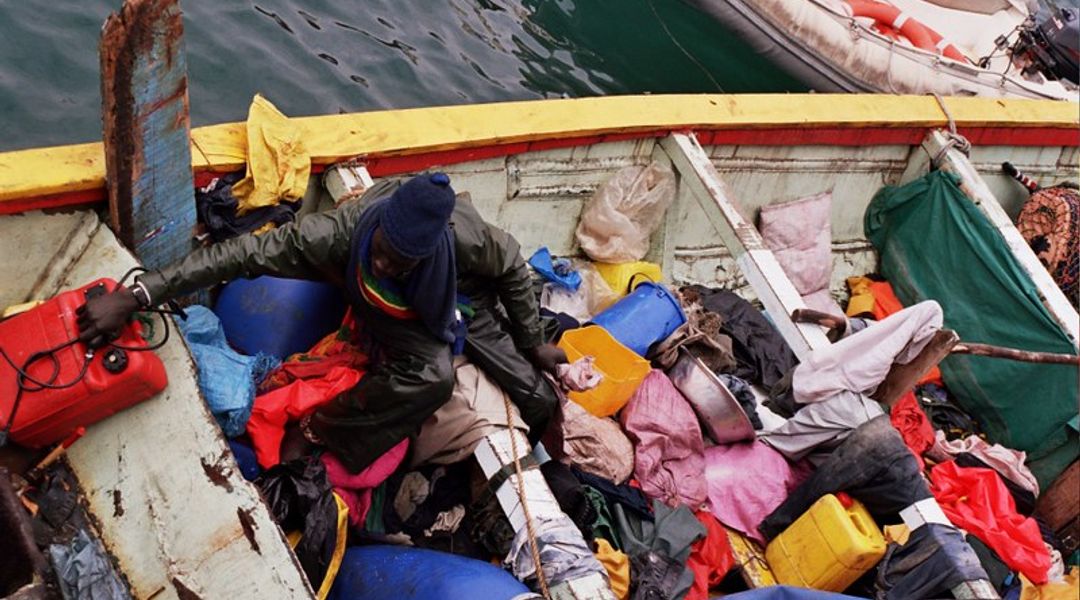At the Pegaso Cultural and Social Center in northern Madrid, young migrants
arrive alone or in small groups. On this particular evening, about 20 teenagers
from sub-Saharan Africa take their seats around several tables as volunteers
from the organization Somos Acogida (“We Are Welcome”)
prepare to teach them Spanish. All of them are minors who arrived in Spain
without their parents.
“Tonight, we have kids from Senegal, Mali, Mauritania, Gambia, and one
from Morocco,” said Carlos, a volunteer. Some live in government-run
migrant shelters, while others are housed in private residences. As Carlos
prepares to teach them basic Spanish phrases they might need at a doctor’s
office or pharmacy, his colleague Marta added, “We’re here to provide
comfort, too. Many of them haven’t heard from their families in a long time.
Here, they feel safe.”
‘Spain needs workers’
The number of unaccompanied minors arriving on the Canary Islands after
dangerous sea crossings is rising. The issue has become a political flashpoint,
particularly as the islands struggle to accommodate them. Local officials have
warned that at least 4,000 minors must be relocated to mainland Spain as soon
as possible, but efforts to do so have stalled.
For months, agreements to transfer the minors from the Canary Islands to
other regions have been blocked by conservative and Catalan nationalist
parties. The only deal reached so far, a limited agreement with right-wing
leaders last summer, relocated just 347 minors. The far-right party Vox
responded by cutting ties with its conservative allies in Castilla y León,
Valencia, Aragón, and Murcia.
“Vox is using these children as political pawns, and the conservative
right is too afraid of losing votes to take action,” said one political
analyst. The impasse infuriated Marta. “Spain needs workers—what are our
leaders waiting for?”
‘They all want to
be soccer players’
Mamadou, 18, arrived in Spain from Senegal months ago and is now training as
an electrician in Madrid. Razak, 19, from Ghana, has been in Spain for over two
years. After living in shelters in Barcelona and Madrid, he is now in Toledo,
learning how to install fiber-optic cables. “I first went to Italy when I was 15, but life was too hard
there,” Razak said quietly.
“Once they learn Spanish, we train them to become electricians,
hairdressers, or warehouse workers,” said Marta. Emilia, the founder of Somos
Acogida and a retired teacher, watches over them. “Back home, they
see Europe on TV and think life here is easy. When they arrive, they all want
to be soccer players. But once they turn 18, reality hits—they need to
work.”
Their ability to find jobs depends on their training while under state care
and whether they have the right documents. Khalid (name changed), a newly turned 18-year-old
from Mauritania, arrived by plane last year. “I barely learned anything at
the shelter,” he says. “There were 80 to 100 of us in a space meant
for 30, and we had nothing to do all day.” He added, “We weren’t
treated well—I was even hit.”
‘Businesses need workers’
In Castilla y León, the nonprofit Hechos supports about 20 young
migrants from sub-Saharan Africa and Morocco in two group homes in Burgos and
Palencia.
“If they’re under 16, we send them to school. If they’re older, they
need to learn Spanish and quickly start vocational training because they’ll be
on their own at 18,” explained Irene Menéndez, the organization’s director. “Lately, teens have been arriving just months before they turn 18, which
isn’t enough time to train them properly.”
Since 2006, Hechos has helped 200 young migrants, 90% of whom now
work as electricians or factory workers. “In Burgos, local businesses need
workers, and they tell us that directly,” said Menéndez.
Last November, the right-wing and Vox-controlled city government of Burgos
tried to cut funding for nonprofits working with migrants. But backlash from
local business leaders and residents forced them to back down.
‘It’s a disgrace’
This incident highlighted Vox’s growing influence. The party frequently
targets unaccompanied migrant minors, referring to them only as MENAs
(the Spanish acronym for “unaccompanied foreign minors”).
Spain’s central government recently reached a deal with Canary Islands
officials to distribute the minors based on factors like regional GDP and population.
But parliamentary approval is still needed.
“The issue is both political and economic,” said Menéndez. “If we really want to integrate these young migrants, we need to invest in
infrastructure because the system is already overwhelmed.”
Ismail El Majdoubi, a 25-year-old Moroccan who was once in state care and
now works as a social mediator, is frustrated. “That relocating 4,000
minors is seen as a crisis in a country like Spain is a disgrace,” he
said.
By the Numbers
In 2024, 61,323 migrants entered Spain illegally by sea (+10.3% from 2023), including 46,843 through the Canary Islands (+17.4%), according to Spain’s Interior Ministry.Currently, 5,860 unaccompanied minors are under the Canary Islands government’s care. Most are over 15 and come from Senegal, Mali, Morocco, and Gambia.Since 2022, only 350 minors have been relocated to mainland Spain.According to Spain’s Ministry of Inclusion, Social Security, and Migration, 60% of migrants aged 16 to 23 are employed.
